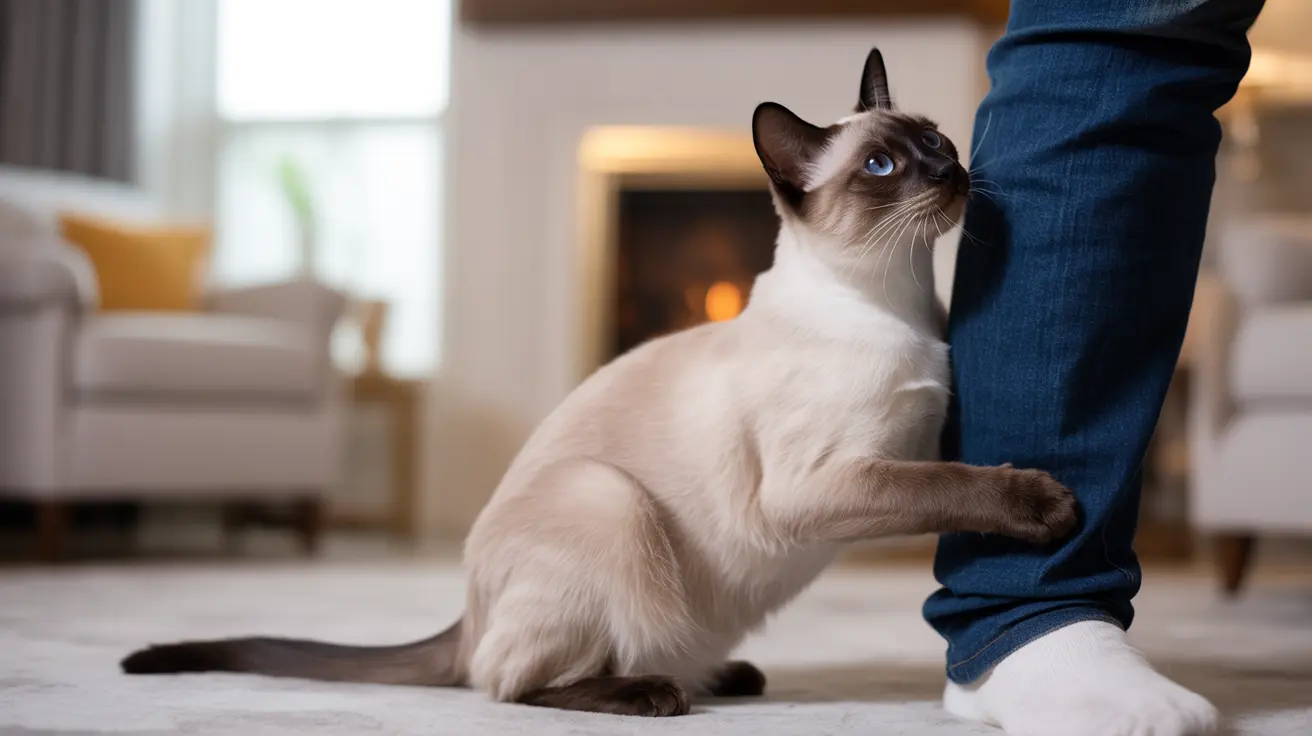If you've ever wondered why your cat seems to constantly bump and rub against you, you're not alone. This seemingly simple behavior is actually a complex form of communication that reveals volumes about your cat's feelings, social needs, and instinctive behaviors. Cats use rubbing as a sophisticated method of interaction that goes far beyond mere physical contact.
Understanding the science and psychology behind cat rubbing can help you appreciate the deep bond your feline friend is trying to establish with you. From marking territory to expressing affection, each rub tells a unique story about your cat's emotional world.
The Science of Scent: How Cats Use Rubbing to Communicate
Cats are equipped with specialized scent glands located on various parts of their body, including their cheeks, chin, forehead, and tail base. These glands produce pheromones – chemical signals that are odorless to humans but incredibly meaningful in the feline world. When your cat rubs against you, they're essentially creating a personalized "scent signature" that communicates important information.
Territorial Marking and Social Bonding
When your cat rubs against you, they're doing much more than just seeking attention. This behavior is a deliberate act of marking you as part of their trusted social group or "colony". By transferring their unique scent, cats are declaring, "You belong to me, and I belong to you." This instinctual behavior is passed down from mother cats to their kittens and serves as a fundamental way of establishing social connections.
What Your Cat's Rubbing Really Means
A Greeting and Welcome Home
Research suggests that approximately 83% of cats rub against their owners after a period of separation. This isn't just a coincidence – it's a heartfelt greeting. By rubbing against you, your cat is saying, "I missed you" and reaffirming your social bond. This behavior helps them feel secure and reconnected after any time apart.
Information Gathering and Sensory Exploration
Interestingly, rubbing is also a way for cats to gather information about their environment. When they rub against you, they're not just leaving their scent – they're also taking in your scents, learning about where you've been and what you've been doing. It's like their own version of catching up on your day.
Interpreting Different Types of Cat Rubbing
Head Bumps and Face Rubs
When a cat bumps their head or rubs their face against you, they're engaging in what's known as "bunting". This is considered a high-trust behavior, typically reserved for individuals they feel completely safe and comfortable with. It's essentially a cat's way of giving you a hug.
Tail Base Rubbing
Rubbing with the tail base is another fascinating behavior. This area contains concentrated scent glands and is often used in more assertive marking behaviors. When your cat rubs their tail base against you, they're making a strong statement about ownership and affiliation.
When Rubbing Might Indicate Something More
While most rubbing is a positive sign of affection and social bonding, excessive rubbing could sometimes indicate underlying needs. Your cat might be seeking attention, requesting food, or trying to initiate play. In some cases, increased rubbing can also be related to hormonal changes, particularly in unspayed or unneutered cats.
Frequently Asked Questions
Why do cats rub against people as a form of greeting?
Cats rub against people to transfer their scent, mark territory, and show they consider you part of their social group. It's a friendly, instinctive way of saying hello.
How does my cat use scent glands to mark me as part of their territory?
Cats have scent glands on their face, chin, and tail base that release pheromones. By rubbing against you, they're depositing these chemical signals, effectively claiming you as part of their trusted circle.
What does it mean when my cat rubs against me and then bites?
This could indicate overstimulation. While the initial rub is affectionate, the bite might be a signal that they've had enough physical contact and want space.
How can I interpret my cat's headbutting or face rubbing behavior?
Headbutting and face rubbing are signs of deep trust and affection. When a cat does this, they're showing you're an important part of their social world.
Is excessive rubbing by my cat a sign of any health issues?
Generally, rubbing is normal. However, sudden increases in rubbing could indicate stress, hormonal changes, or a desire for attention. If you're concerned, consult with a veterinarian.






